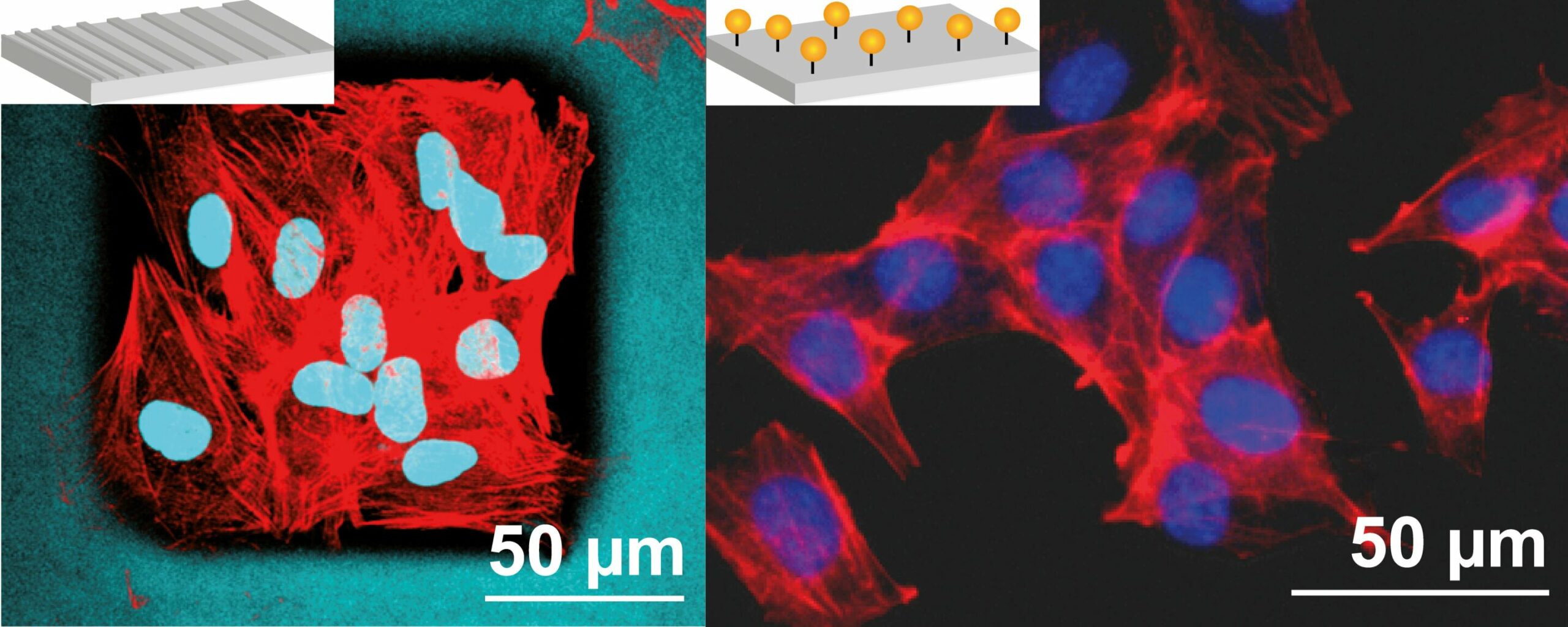

Researchers at the University of Bayreuth, led by Prof. Dr. Thomas Scheibel, have discovered that materials made of spider silk can be modified to specifically promote the growth and proliferation of living cells of a certain type. This breakthrough in regenerative medicine comes from the ability to generate cell-specific effects of spider silk materials by modifying silk proteins biochemically or structuring their surfaces. Spider silk is an ideal scaffold for natural rebuilding processes because it is biodegradable and generally compatible with existing cells of the organism.
The Bayreuth research results obtained at the Chair of Biomaterials show how a scaffold made of spider silk can be optimized for spatially different sections in the future, allowing materials to be used that are particularly well suited for the targeted attachment, growth, and proliferation of cells of a required cell type. This discovery could potentially lead to the production of large natural tissue structures involving different cell types. The scaffold is gradually degraded in a natural way as the tissue regeneration progresses, making it an ideal material for biomedical restoration.
The research results also benefit the optimization of implants that are intended to permanently replace natural tissue and remain in the body. The materials used must ensure that the implants are not rejected by inflammation or allergic reactions. A coating of spider silk, which is optimally adapted to the respective cell types in the surrounding tissue and promotes their attachment, helps to avoid such rejection reactions and thus contributes to the smooth integration of the implant into the natural tissue.
Cell-specific effects of spider silk materials can be produced by functionally modifying silk proteins through the incorporation of peptides, which are short-chain polyamino acids. Peptides that interact with cells (cell-adhesive peptides) are present in the extracellular matrix (ECM) of natural tissues. The Bayreuth researchers have grafted some cell-adhesive peptides found in the ECM of numerous organisms, including humans, into several variants of a silk protein derived from a spider silk of the garden cross spider. This modification has allowed the silk proteins to exhibit cell-specific interactions.
The study published in Advanced Materials Interfaces presents a different way to optimize spider silk materials. Coatings made from one silk protein derived directly from the silk of the garden spider do not exhibit cell-adhesive behavior on their own without biochemical modification. The research team has now used a lithographic process to structure the surface of these coatings in such a way as to specifically stimulate the attachment and growth of cells of a certain type.
Overall, the research findings published in Advanced Healthcare Materials and Advanced Materials Interfaces are pioneering for regenerative medicine and the production of artificial tissue. The discovery of how spider silk materials can be optimized for cell-specific applications opens up a novel pathway for designing scaffolds to promote natural regenerative processes, in the coating of implants, or even in the 3D printing of hydrogels with encapsulated cells that can be further processed into functional materials.
In the world of pharmaceuticals, innovation often hinges on finding new compounds that can lead…
In the heart of the Amazon basin, drastic climate changes present an alarming reality that…
Air fryers have rapidly surged in popularity, captivating home cooks and culinary enthusiasts alike. When…
In an era where technology and social media reign, the importance of sleep often takes…
In an era where environmental consciousness is paramount, the maritime industry has long been scrutinized…
Radionuclides, often relegated to discussions surrounding nuclear energy and radioactive waste, have far-ranging implications for…
This website uses cookies.